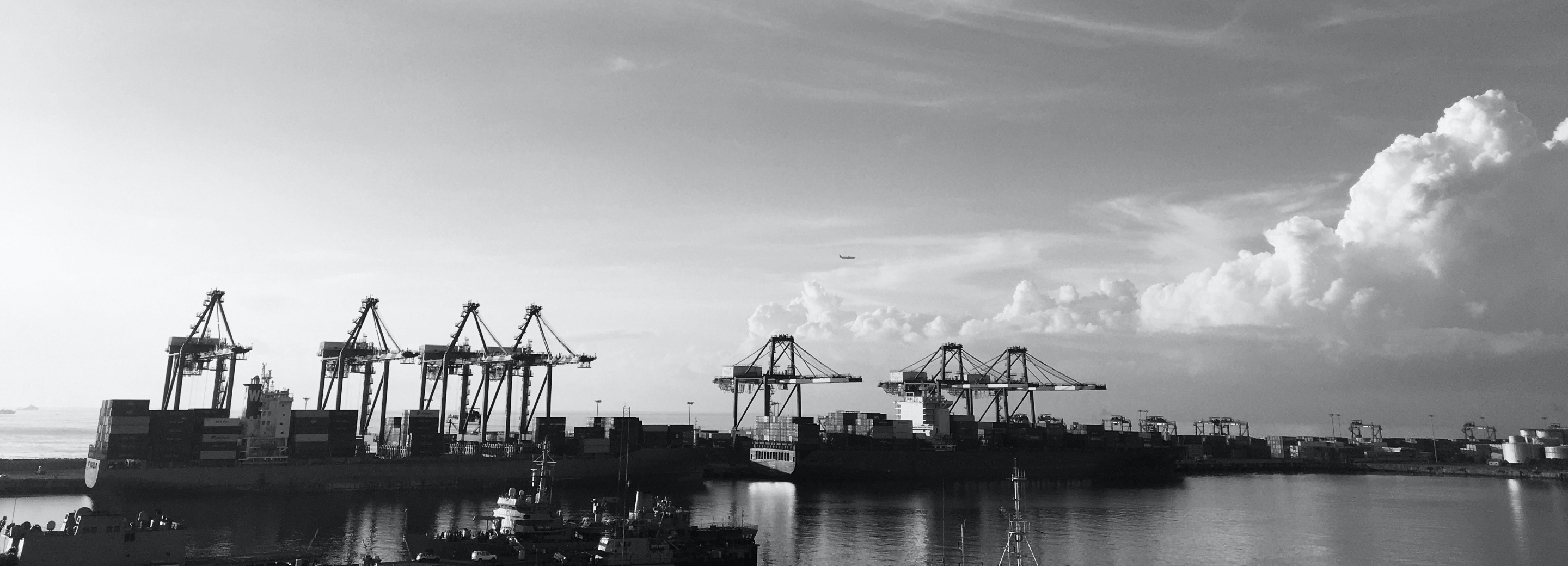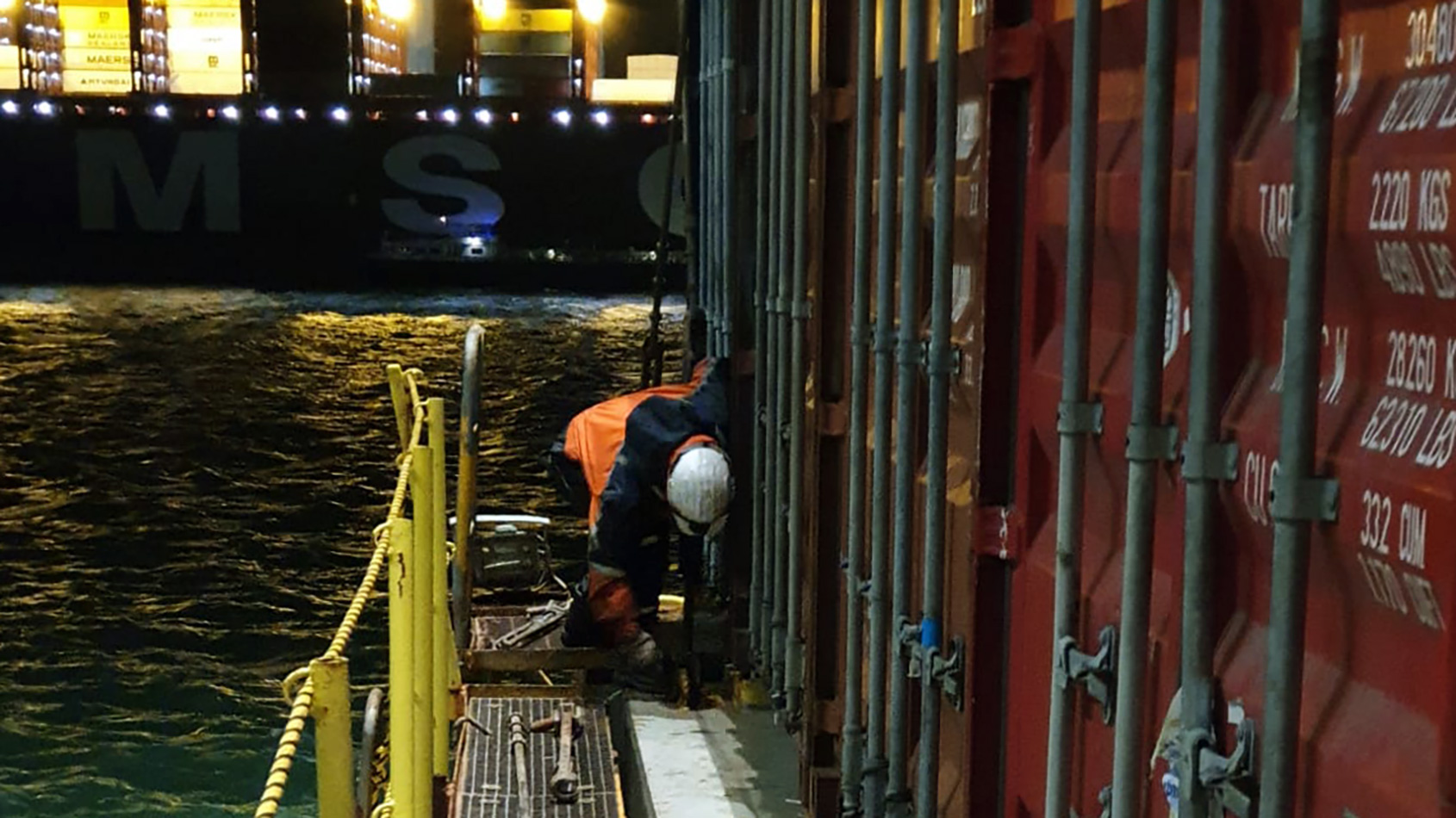
While the Court of Rotterdam’s decision today in the Netherlands is disappointing, the International Transport Workers’ Federation (ITF), the European Transport Workers’ Federation (ETF) and the bodies’ affiliated unions today vowed to continue the battle to achieve compliance with the Non-Seafarers’ Work Clause.
The Dutch court unfortunately refrained from immediately ordering a shipowner and manning agents to comply with the Non-Seafarers' Work Clause, also known as the Dockers' Clause.
The ITF, ETF and the bodies’ affiliated unions Nautilus NL, FNV Havens and Ver.di have long challenged the industry to comply with the clause and stop exposing seafarers to additional workplace health and safety risks and stop depriving dockers of their valuable work.
Despite the decision to dismiss the unions’ preliminary request to prohibit the lashing by seafarers immediately in advance of the results of main proceedings, unions believe that the agreement is clear that this cargo handling work must be undertaken by trained, experienced dockers when they are present; putting an end the dangerous practice of fatigued seafarers undertaking lashing.
According to the verdict, urgency for interim relief as a result of the non-compliance indeed exists. However, the presiding judge was of the opinion that more extensive judicial review would be necessary to examine the several factual and legal questions, according to the ruling. Disappointingly, the judge considered that the matter was too complicated for summary proceedings.
The case is the outcome of a joint effort by the unions. The clause negotiated to finally bring in the necessary protections, came into effect on 1 January 2020, following an agreement in February 2018. The above unions joined forces to enforce this on 3 June 2020, filing preliminary relief proceedings against manning agents Marlow Navigation Netherlands B.V. and Marlow Navigation Company Limited (registered in the Netherlands and Cyprus respectively) and shipowner Expert Shipping B.V in the Netherlands. Five charterer companies later made an application to the Court to join these proceedings.
Following today’s verdict, the maritime unions will continue to fight for compliance with the Non-Seafarers’ Work Clause to see it enforced in full on all vessels with ITF collective agreements.
The maritime unions are now considering whether to instigate appeal on the preliminary decision or proceed to the pending main proceedings where the Court will extensively examine the matter.
Media Contact: media[at]itf.org.uk
Note: Media contacts for other unions can be requested via the ITF contact above.
Notes to Editors
What is the Non-Seafarers' Work Clause?
The clause is part of the International Bargaining Forum (IBF) agreement between the Joint Negotiating Group, representing ship owners, and the ITF, representing seafarers. Those who employ seafarers have to adhere to the IBF Agreement in full, including the Non-Seafarers' Work Clause.
The clause aims to improve the safety of seafarers working on vessels by aiding in adherence to appropriate work and rest hours, reducing fatigue and by having this dangerous task completed by workers who are specifically trained for the task. Comprehensive research has shown that it is safer when specifically, trained lashers carry out the cargo handling.
More legal proceedings are expected to achieve full compliance with the Non-Seafarers' Work Clause. In the Netherlands, proceedings on its merits are pending.
Labour unions (of seafarers and dock workers) worldwide will continue to protect the interests of seafarers and dock workers.
What does the clause actually say?
“Neither Seafarers nor anyone else on board whether in permanent or temporary employment by the Company shall carry out cargo handling services in a port, at a terminal or on board of a vessel, where dock workers, who are members of an ITF affiliated union, are providing the cargo handling services. Where there are not sufficient numbers of qualified dock workers available, the ship’s crew may carry out the work provided that there is prior agreement of the ITF Dockers Union or ITF Unions concerned; and provided that the individual Seafarers volunteer to carry out such duties; and those Seafarers are qualified and adequately compensated for that work. For the purpose of this clause “cargo handling services” may include but is not limited to: loading, unloading, lashing, unlashing, checking and receiving.”
About the ITF: The International Transport Workers' Federation (ITF) is a democratic global union federation of nearly 700 transport workers trade unions representing around 20 million workers in 150 countries. The ITF works to improve the lives of transport workers globally, encouraging and organising international solidarity among its network of affiliates. The ITF represents the interests of transport workers' unions in bodies that take decisions affecting jobs, employment conditions and safety in the transport industry.
